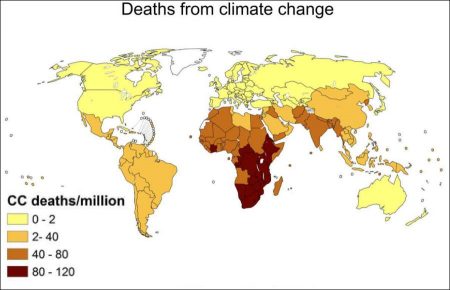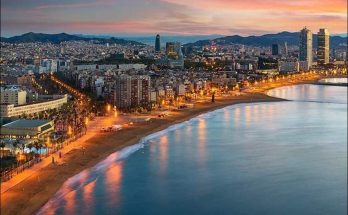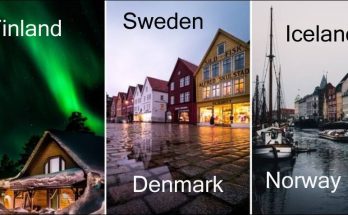Not only is there no such thing as an ideal climate, except at certain times of the year for a particular disease, but the health seeker will find that climates the world over, within certain ranges, are a good deal more alike than they are unlike. It rains and snows occasionally even in southern California.
Mountain altitudes and deserts, as an offset to their clear, dry air, usually have a most abominable amount of wind with sand- or dust-storms at some time of the year, no matter how the guidebooks may lie about it. If you go to the North, or to the mountain tops, you must be prepared to face cheerfully snow and blizzards and sleet in the winter time, and wind, rain, or fog at any season.
If you go to the South or to the desert, you have to figure on a season of even greater discomfort during the five to seven months of summer. Don’t expect miracles any more in the realm of climate than anywhere else. Go prepared to take advantage of the best weather, and to bravely defy all but the most intolerable parts of the worst weather, and your change of climate will do you good in eight cases out of ten wherever you go. In the past, most of the health resorts have been in the South, because as a matter of fact, most so-called health seekers are really warmth-seekers, running away from the cold and the sleet of our hyperborean winters to bask in the warmth and sunshine of the South.
Unintelligently and indiscriminately employed in this fashion, change of climate does only a very moderate amount of good. In the days when we sent our European consumptives to the Mediterranean and the Canary Islands, and our American ones to the West Indies and Florida, the majority of them did not recover. They simply died more comfortably, and often more rapidly than if they had remained at home. If any one goes South to avoid the trouble of ventilating his bedroom properly, or taking sufficiently vigorous exercise in the open air to get up a glow and defy the frost, he is doing himself harm rather than good.
Practically, however, the majority of health resorts will continue to be in southerly latitudes, for two reasons: One, that a healthy, agreeable open-air life can be led almost anywhere within the temperate zone in summer time. Hence the great majority of invalids scarcely think of formally “going away for their health” except in the winter time. And secondly, that when this seasonal limitation, viz., that they must be available in the winter time, has been imposed, those that present the greatest number of inducements to live and sleep in the open air, are those which will give the best results.
We are, however, rapidly widening our range in this particular, as we are finding that, except for the most delicate and sensitive constitutions, a visit to the woods, to the mountains, to the sea coast in winter time, will, for those who have the courage to take it and to expose themselves bravely to the weather, be as beneficial as a trip to the blue skies and languorous airs of the South. In fact, in the majority of cases, more benefit will be obtained in a shorter time in one of these Northern resorts than in many Southern ones.
Physicians are coming more and more to recommend their health-seeking patients to the Adirondacks in the winter time, the Canadian Highlands, the Maine woods and lakes, such bracing coast climates as Atlantic City and Lakewood, and such moderately stimulating climates as the mountains of Virginia, North Carolina and Georgia, where “the chill is off” the air, but it is still bracing and keen.
This explains why the frontier has always had a reputation as a health resort. Most of us can remember how in our younger days health seekers of all sorts, asthmatics, lithemics, and above all, consumptives, were sent out to the banks of the St. Lawrence, to the virgin forests of Michigan, or to the prairies of Iowa, Minnesota, Dakota, to the Canadian Northwest, to the plains of Nebraska, Wyoming and Kansas, and while accurate data are of course lacking, it would be safe to say that at least 50 per cent. more of these recovered than of those who simply drifted south like wildfowl before the winter storms.
The reason, in a nutshell, was that life in the open was the only life which was possible on the frontier, and is practically yet. The consumptive’s greatest enemy, the house, was conspicuous by its absence; such imperfect substitutes for it as existed, were really so loosely built as to be self-ventilating and to allow the winds of heaven free access at all hours and seasons, or so uncomfortable and unattractive, that the sufferer Could not “den up” in them with any sort of comfort, and was obliged to turn for enjoyment to the open air in self-defense.
To this day, in the sub-tropical health resorts like Arizona, New Mexico and southern California, one of their chief practical advantages is that patients have to go out and sit in the sun to get warm. The high price of fuel in Southern California and other Southwestern resorts is really a blessing in disguise, though you wouldn’t think so to listen to the language of the average tourist and hear his teeth chatter. This brings us to another practical advantage of going out upon the frontier and to the majority of not too highly civilized and pampered health resorts, and that is, that the whole scheme of life of the entire community is based upon a life in the open, and free from the strains and confinements of ordinary business and social life.
At home, the health seeker, by even intelligent life-in-the-open methods, finds himself in a minority and apt to be looked upon as a freak, one who excites curiosity, if not derision. As the children say, he “has no one to play with.”
Out on the frontier he finds scores of other men and women who are living with the same object in view. Many of them, having recovered their health and become prominent and influential members in the commercial and social life of the community, the whole life of the village, of the settlement, of the colony, is laid out upon healthier, broader, less strenuous and more reasonable lines than that of the Eastern community from which he has come. While preserving plenty of snap and interest in life, a little of the golden haze and sunlit calm of the lotus eater has tinged the mind of the people.
It is easier to live simply, naturally and healthfully than in the whirl and rush of the city or even Northern country life. Here is another great advantage of the American over the European health resort. You need not cut yourself off from the currents of human interest and contact with human progress by becoming a health exile. Problems of the greatest interest, experiments of the highest value to the race are continually in the air and in process of experimentation and solution on the frontier, and upon the borders of the desert.
It is easy to become interested in some of them, to develop a hobby, and still live a free, active open-air life. In the European health resort you are at best only one of a group of Wealthy idlers, of valetudinarian loafers, altogether isolated from and out of touch with the problems and interests of the people and the country.
Visits: 74



